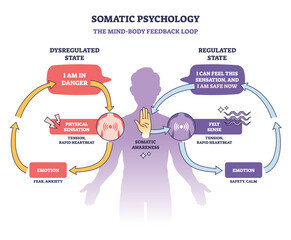Resiliency is the ability to recover from, resist being affected by, or overcome, an obstacle. Sound like anything the world is experiencing right now? Although all of us are being challenged by the current pandemic, we have always needed a set of skills and characteristics that allow us to adjust and cope effectively with life’s unpredictable moments. We need to gain self-righting tendencies when our life gets disrupted.
Uncertainty is inevitable. It’s an unpleasant fact of life, and when we become able to accept that which we have control over and let go of the rest, we become more open to bouncing back after adversity. It is not the experience itself that causes us stress; it is our response to it – our need for control – our fears of vulnerability. Now, this is not to minimize traumatic experiences but to focus on how we react, how we internalize and how capable we feel of responding to the aftermath of our experience.
Why is it that some people seem to ‘roll with the punches’while others fall down and can’t get up? Here are some key traits of people who are resilient in the face of adversity and ways in which you can strengthen these traits within yourself,and your family.
Acceptance- When something bad happens, we tend to relive the event over and over in our heads, rehashing what occurred. This process is called rumination, and it doesn’t move us forward toward healing and growth. Those who are able to acknowledge their feelings and work to understand what happened give them a more realistic assessment of the experience. They don’t remain ‘stuck’ inthe problem; they work to solve the problem.
Fostering Acceptance: Set realistic expectations. Striving for perfection will only result in disappointment. Focus on what you can do, not what you can’t. Take the ‘T’ out of can’t and you CAN Try! Embrace mistakes as learning opportunities.
Persistence – Tackling uncertainty with determination is intimidating, yet empowering. The ability to not give up and find alternative ways to get what you need is the approach needed to override fear and anxiety. Developing competence and confidence builds a sense of mastery that allows us to know that no matter how bad it is right now, there are ways to recover and progress.
Fostering Persistence: Find ways in which you have persevered through something difficult before. Focus on those skills and strategies used to help you succeed then and begin using them in this current situation. Face your fears; expose yourself to the thing that scares you—in small doses. Over time,you can incrementally increase the challenge until you’re ready to confront what makes you anxious with more self-assurance.
Optimism – Perceiving struggles as opportunities is no easy task, but one that transforms adverse experiences into potential for growth and learning. Choosing to contemplate an event’s upsides and finding the ‘silver lining’ invites you to reflect on what is good, feeling hopeful not hopeless. Focus on gaining something rather than feel all the loss surrounding it.
Fostering Optimism: Call to mind an upsetting experience and try to list three positive things about it. Practicing gratitude by journaling daily appreciation to document what went well, what you can feel good about, and what was encouraging reminds us of what is rather than what isn’t. Look at what is working, what you can count on and make sure you balance the thoughts in your head so that for every negative belief, you place a positive one next to it.
Perspective – At first, a situation may seem impossible but those that can take a step back and assess the scenario with possibility are more resistant to despair and the inability to cope well with adversity. Think of a camera lens; when you zoom in you only see a very small portion of the picture and can miss out on many details yet when you zoom out you can gain a deeper perception of what’s going on and how you might be able to respond.
Fostering Perspective: Take a step back. Take a break. Go for a walk. Removing yourself from the immediate stress or makes it possible to view the situation as a whole, not the irritant that fuels your stress. Using the phrase “What else…”might be going on, happening here, might I do about this, etc. can help us analyze the situation and find better ways to take on the uncertainty.
All these traits, plus a little flexibility thrown in, help boost our resilience. They allow us to focus on what we CAN control, even when there is much we cannot. Practicing these qualities reduces anxiety, making it easier to think clearly and move forward, rather than resort to the fight, freeze or flee mentality. We’ve all had our identities,our routines and our roles challenged by the changes in our lifestyle recently. Learning to ride the wave of uncertainty with a boat well captained will get you to the shores safely;although bring your raincoat to protect you in the storms.
If you, or someone you know, would like professional help developing these and other resiliency traits please call one of our capable counselors who can help steer your ship by offering you the strategies to weather this storm upon us.
Greta Nielsen, MA, LCPC, NCC




